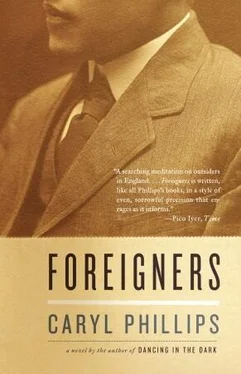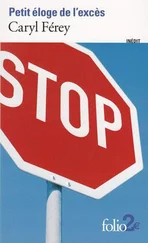I look over the low fence of 209 Belle Vue Road. The garden is a riot of overgrown weeds and shrubbery. A blue minivan lies derelict in the yard. Beyond the minivan, at the end of the long narrow garden, stands the three-storey house. There are six neatly spaced windows on the top two floors, three on each. The ground floor boasts a bay window. The curtains are variations of white and green, and they don't match. The curtains that hang in the bay window on the ground floor are white, but their dignity is compromised by the fact that not only do they hang askew, they are also badly twisted. Traditionally, curtains block out all light. They block out the day. The world. But not these curtains. To the side of the front gatepost somebody has hand-painted '209'. Blue string holds the brown gate shut, but much of the fencing to either side of the gate has collapsed. The gate serves little purpose. This was David's home. The place he hoped to return to when the High Royds doctor said, 'You're discharged.' This large three-storey brick house with a crushed Marlboro packet lying discarded by the gate; a place that boasts no television aerial on the roof. Back in the thirties this must have been a highly desirable neighbourhood for the street is broad and the houses suggest grandeur and affluence. But by David's time — by the fifties — this area was full of transients and prostitutes; and little has changed. Today a woman (Miss Dorton-Smith) lives here alone, but she will not answer her door. The door remains closed. I walk around to the side fencing. The labyrinth of jungle hides two more minivans, one red and one white; and the skeleton of a motorbike. The house, the garden, the vehicles, have all been 'let go'. Abandoned.
The next time I saw David must have been six or seven years after the dance. I was walking down towards the university and he was walking up. I hesitated for a moment because he had changed. He'd put on an awful lot of weight and the bounce had gone. It was just no longer there. And the light had also gone from his eyes. David was a man who was in the habit of making strong eye contact, but I looked at him and saw that the light had definitely gone out. And then he told me that he'd been in hospital, and I thought 'oh shit'. Around this time people were beginning to become conscious that Armley jail wasn't the only place that could brutalise these men. We stood together by Woodhouse Moor and talked for a while, and I just assumed that he still lived at Belle Vue Road where he'd been living before. But it was only later that my husband explained to me that David probably appeared strange because he was so pumped up with drugs. After this meeting by Woodhouse Moor I met him next at a dance at Jubilee Hall where he was a bit more talkative, and I seem to remember he was mixing in quite a lot. And then one of the Ghanaians confirmed everything for me, and he told me that David had been drugged while he was in the mental hospital and that's why he'd been behaving a bit strangely of late. And then after a few months or so, David disappeared again into Armley jail. By this stage I'd already decided that I was going to watch out for him. Armley jail had a fearsome reputation, for the wardens and officers often had fascist pins on the inside of their lapels, and they'd flick them at you if you were visiting a coloured prisoner. But they didn't frighten me. I wouldn't let them.
When David came out we started seeing a lot more of him, especially around Chapeltown. But the truth was although he still wore a suit and tie he was beginning to look a little unkempt. He had a bit of a wispy beard, not like the straggly one he had towards the end, but he wasn't really holding it all together as well as he'd done in the past. The Hayfield pub in Chapeltown was now our regular hangout, and he'd sometimes come into the pub, but David was never much of a drinker. I mainly saw him in the street, and he always gave me the impression that he knew where he was going. However, it was only after two or three years that I realised that when David left us after a night in the Hayfield he was, in fact, going to sleep in shop doorways. Things were getting worse for David, and in those days he was always getting himself arrested, but mind you it was never his fault. I would go to the cells and try to get him a solicitor and arrange for bail, but it was clear what was going on. Once I went to court and David was in the dock with a bruised right eye, yet they were convicting him of assaulting a police officer if you can believe it. I mean, you only had to look at the size of the police officer and then look at the size of David to see how ridiculous this was. The other charge that they habitually brought against David was that he had been drunk, but everybody knew that David was not a major drinker, but the situation was hopeless. The police did whatever the police wanted to do, particularly when it came to vagrants, and especially when it came to coloured people. David, being the only coloured vagrant in Leeds, was in a bad situation.
My husband and I always looked out for him, and if we ever heard that he was in a particular shop doorway we would always go out and try to find him. The white vagrants slept in the city centre underneath the railway arches, but whenever I went down there looking for David they would say 'He's not here' and 'We don't want that type around here'. I mean, the cheek of them. We tried to get David into the shelter at St George's Crypt, but they said that he was a drunk and that he was too loud, but what they didn't say was that he was too black. The Salvation Army would often take him in for a couple of days, but then he'd get racially abused and he'd answer back and that would be the end of that for they'd want to get rid of him. You know, that was half the problem, that David wouldn't take any abuse from anybody. And he was an easy target. In the early days, the lonely walk back home across Woodhouse Moor from a night's drinking in Chapeltown, or from the Mecca, always left him exposed. I'd never realised just how much of an easy target he was, but he'd never take any abuse from anybody, including the police. They would always tell me that David had failed the 'attitude test', but that was because he wasn't prepared to be anybody's victim. Some of the other Africans tried to help him, but you know it was a very busy time with lots of activism. People's energies were being used up all over the place. It was, after all, the beginning of the Black Power movement for one thing, and the local community were actually succeeding in their efforts to close down racist pubs. People were busy and so they didn't always realise that David was no longer on the scene.
I think David suffered a lot in silence. I'm sure that the first time they took him into Armley jail he wouldn't take any abuse from the screws, and that's why they sent him to the asylum where they treated him like a schizophrenic and tried to drive him mad. Oh, they have their stupid reasoning, telling you that he gets aggressive and that they can't understand him, but it's a cultural thing for heaven's sake. Rather than add another adverb or clause, West Indians and Africans tend to raise their voices or use their hands to speak. Jews do it as well, and that's not madness that's culture. But by sending him out of Armley jail and to High Royds they deliberately made David 'slow' when he was never, ever, slow before. I mean, when he emphasises with his hands they say he's aggressive, and so they pump him full of drugs. Like anybody, David could be lippy if you insulted him, but ninety-nine per cent of the time he was extremely gentle and polite, and very protective. I remember that once when we were out somebody swore in a pub, and David just looked at the offender and said, 'Ladies', meaning, 'Stop that because ladies are present.' After David came out of the hospital he was very, very quiet. On a few occasions the police actually phoned my house. Not all the police were bad apples. There were some good ones, and if they found him sleeping rough anywhere near my house they might call me up and David would come here and spend the night. In the morning he'd wake up, read the Guardian , then have some breakfast and go off. Before David left the house my husband would often ask him, 'David, shall we go and look for a flat for you?' but he would always say, 'No, I'm fine. I'm going to meet somebody.' He never wanted help. He was too proud. In fact, as soon as I even got close to saying that I'd get him a flat, or a rented room, he didn't want to discuss it. He was a man of great personal dignity. He used to have such high hopes for his future, but the sad thing was he came to recognise that all of that had gone. In the old days he used to wonder what he'd do once he qualified as an engineer. That's all he used to think about. But this new David didn't want to be pitied. Not by anybody. But I should also say that there were others who helped a lot more than I did. Other Africans were always looking out for him. If they saw David wasn't doing well they would offer to give him money, or help him in some way. I remember one Ghanaian who sold crockery, and who had a crockery warehouse. This man always left the side door of his warehouse open in case David needed somewhere to sleep, but David didn't want to bother anybody. He didn't want to be a burden or cause trouble for anybody. This was his way.
Читать дальше











![Unknown - [Carly Phillips] The Bachelor (The Chandler Brothe(Bookos.org) (1)](/books/174132/unknown-carly-phillips-the-bachelor-the-chandle-thumb.webp)
